MercoPress. South Atlantic News Agency
Tag: Falkland War
-
Saturday, June 15th 2024 - 09:00 UTC
Falklands, team of Royal Navy engineers maintain war memorials across the Islands
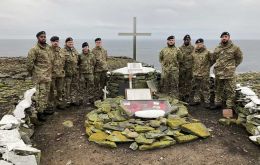
UK Defense Journal is reporting that the Naval Engineering Falkland Islands (NEFI) team at the East Cove Military Port, Mare Harbor, an 11-member unit, is responsible for providing round-the-clock engineering support for Royal Navy vessels like patrol ship HMS Forth and cargo ships with supplies for the Mount Pleasant Complex.
-
Wednesday, November 29th 2023 - 07:14 UTC
Falklands: mines discovered on a beach in Murrell Peninsula, north of Stanley
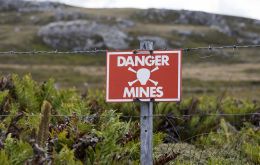
The Falkland Islands Government has confirmed that a number of mines have been discovered on Hell’s Kitchen beach on the designated Government Reserve, located on the Murrell Peninsula East Falkland, north of Stanley.
-
Friday, October 13th 2023 - 08:26 UTC
Forty one years since the Falklands Task Force Parade in the heart of London

The Falklands Task Force Parade took place on 12th October 1982, in London, and a few months since the Liberation of the Islands from the Argentine invasion and occupation. The salute to the Task Force encompassed a military parade, with military bands and contingents through the City of London.
-
Saturday, September 9th 2023 - 12:59 UTC
Falklands' pilgrimage of six Argentine fallen gendarmes next of kin

This Saturday weather allowing a group of Argentine next of kin of soldiers fallen during the Falkland/Malvinas conflict should be arriving at MPA and the Falklands. The trip according to Argentine sources was coordinated by the Argentine Foreign Ministry and the Ministry of Justice and Human Rights,
-
Wednesday, August 23rd 2023 - 07:43 UTC
“God bless you Harold”, The Times obituary
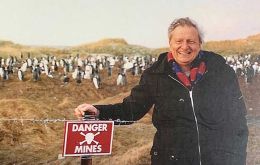
Harold Briley's obituary by The Times, published Tuesday, August 22, 2023. - Reporter who broadcast the first news of Argentina’s invasion of the Falklands in 1982 and later campaigned for the Islanders’ rights.
-
Monday, August 7th 2023 - 08:32 UTC
London considering Ascension island as plan B, if the scheme to send irregular migrants to Rwanda fails
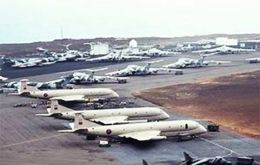
The UK Government is reportedly considering reviving plans to fly people who arrive in the UK by unauthorized means to Ascension Island. Multiple reports say ministers and officials are considering the island as a “plan B” if the scheme to send migrants to Rwanda fails. plan B” if the scheme to send migrants to Rwanda fails.
-
Wednesday, June 28th 2023 - 18:42 UTC
Argentina grants funds for Phase 3 of identification of combatants fallen in Falklands
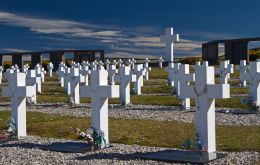
Argentina has announced it will finance 130 million Pesos (some US$ 250,000 at the current free market exchange rate) for Project EAAF 2023 which refers to Phase 3 of the Humanitarian Project for the identification of fallen combatants buried in the Falkland Islands.
-
Monday, June 26th 2023 - 15:52 UTC
Harold Briley, 1931 to 2023
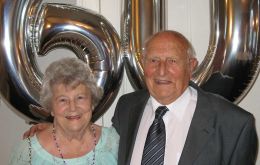
Tributes have been pouring in for Harold Briley, who passed away in the small hours of 26 June 2023, surrounded by his family, after a long battle with cancer, which he bore bravely.
-
Tuesday, February 7th 2023 - 18:01 UTC
Falkland Islanders Honour Veteran BBC Journalist
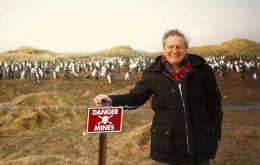
By Graham Bound, London - HAROLD Briley, a BBC World Service journalist who reported from Buenos Aires throughout the 1982 Falklands War, has received a special and rare honour from the government of the Islands.
-
Thursday, December 8th 2022 - 12:20 UTC
Falklands Plaque unveiled at Portland to honor dockworkers involved in readying the Task Force
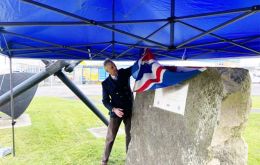
A Falklands Memorial Plaque was unveiled at Portland Port by South Dorset MP Richard Drax, commemorating the work carried out by dockyard employees over a few dramatic weeks in the spring of 1982.
